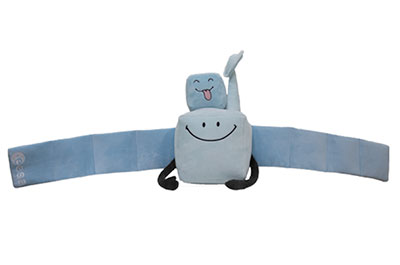Filters
Clear allSubject
- Careers (6) Apply Careers filter
- Climate Change (7) Apply Climate Change filter
- Computing (30) Apply Computing filter
- Creative arts and media (2) Apply Creative arts and media filter
- Cross curricular (82) Apply Cross curricular filter
- Design and technology (62) Apply Design and technology filter
- Engineering (21) Apply Engineering filter
- Food Preparation and Nutrition (3) Apply Food Preparation and Nutrition filter
- Leadership (3) Apply Leadership filter
- Mathematics (66) Apply Mathematics filter
- Personal development (10) Apply Personal development filter
- Psychology (1) Apply Psychology filter
- Science (171) Apply Science filter
- Space (8) Apply Space filter
- STEM Ambassadors (7) Apply STEM Ambassadors filter
- STEM Clubs (3) Apply STEM Clubs filter
Age range
Type
- Activity sheet (2) Apply Activity sheet filter
- Article (2) Apply Article filter
- Game (1) Apply Game filter
- Information sheet (3) Apply Information sheet filter
- Poster (2) Apply Poster filter
- Presentation (4) Apply Presentation filter
- Research (9) Apply Research filter
- Teacher guidance (11) Apply Teacher guidance filter
- Video (12) Apply Video filter
- (-) Remove Include Physical Resources filter Include Physical Resources
Showing 330 results
This is a collection of educational research on enquiry based learning.
Roald Dahl wrote many books for children so we have selected a few resources from our collection to highlight some of the famous stories. Activities suitable for 'The Witches' could include 'Identifying food from its smell' for primary aged children and 'Is there witchcraft and wizardry in the real world?' for...

Top poets across the English-speaking world present: A Rocketful of Space Poems.
...This fun, creative book explores life cycles and is suitable for younger children. This book is part of a series, 'Rosa Explores.' Rosa Explores the Water Cycle is also available.
The Royal Observatory Greenwich is the home of Greenwich Mean Time and the Prime Meridian of the World.
They have created a range of resources to help with lesson planning. Many of these resources have a mix of...
The STEM Ambassador Impact Tool provides a quick and easy method of collecting impact data. STEM Ambassador Hubs, STEM Ambassadors and educators are encouraged to use the tool to evidence the impact of engagement on young people. Click below to access the tool and the supporting guidance.
Reward your club members and student club leaders with a certificate acknowledging their achievements and the skills they've developed.
...
This STEM Learning magazine aimed at all primary teachers contains articles and interviews looking at ideas, hints and tips for teaching science, mathematics, design and technology and computing at primary level. Articles include:
-
How to effectively teach mathematics skills for science to increase...
This issue of the primary magazine includes articles on:
- Evolve your teaching of evolution and inheritance by Karen Brunyee
- Sailing ahead: the Polar Explorer programme by Bryony Turford
- Beyond the partnership by Steve Thurgur
- Outdoor learning with astronomy and space by Tom...

The STEM projects series provides opportunities for students to develop Science knowledge and skills, Design and technology skills, Mathematics skills and general capabilities while...
A study published in 2016 in Educational Researcher looks at the profile of science achievement gaps to the age of 14. The researchers used data from the US Early Childhood Longitudinal Study,
Kindergarten Class of 1998-1999 (ECLS-K), which followed 7,757 children from kindergarten (Year 1) to eighth...
From the British Nutrition Foundation, in partnership with the Agriculture and Horticulture Development Board (AHDB...

